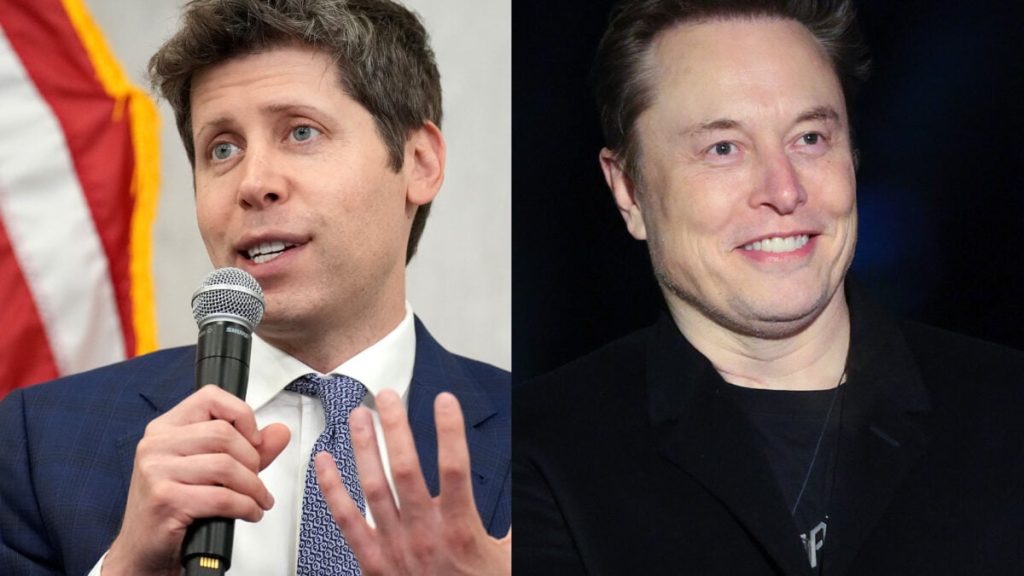Tucker Carlson published a new interview with OpenAI CEO Sam Altman on Wednesday in which the two men discussed some pretty dark topics. Altman also talked about his beef with Elon Musk, and it wasn’t long before the Tesla CEO chimed in on X with his own thoughts, definitively claiming that a whistleblower at OpenAI “was murdered,” in a tweet Thursday.
During the episode, Carlson and Altman talk about Suchir Balaji, a researcher at OpenAI who died on Nov. 26, 2024. Balaji had accused OpenAI of violating U.S. copyright law a few weeks prior to his death. And while it was ruled a suicide, his mother said he was murdered.
He was murdered https://t.co/KDaomi5AlJ
— Elon Musk (@elonmusk) September 11, 2025
Carlson had Balaji’s mother, Poornima Ramarao, on his podcast back in January and insisted that the 26-year-old whistleblower was murdered during his conversation with Altman.
“So you’ve had complaints from one programmer who said you guys were basically stealing people’s stuff and not paying them. And then he wound up murdered. What was that?” Carlson said.
“Also, a great tragedy, he committed suicide,” Altman said.
Carlson pressed Altman, asking if he really thought Balaji killed himself. Altman replied, “I really do.”
“This was like a friend of mine, this was like a guy that—not a close friend, but this was someone that worked at OpenAI for a very long time,” Altman continued. “I spent… I mean, I was really shaken by this tragedy. I spent a lot of time trying to read everything I could, as I’m sure you and others did, too, about what happened. It looks like a suicide to me.”
“Why does it look like a suicide?” Carlson asked.
“It was a gun he had purchased. It was the—this is like gruesome to talk about, but I read the whole medical record. Does it not look like one to you?” Altman said.
Carlson said he definitely thinks it was murder, saying there were signs of a struggle, “surveillance wires had been cut,” among other evidence he believes proves there was foul play. Carlson also told Altman that Balaji’s mother “believes he was murdered on your orders.”
Altman asked Carlson if he believed that, and Carlson tried to avoid answering before saying, “I believe that it’s worth looking into.” Carlson insisted, “I’m not accusing you at all,” after Altman started to say something about being accused and was cut off.
“You understand how this sounds like an accusation…” Altman says.
“Of course. And I, I mean, I certainly… let me just be clear once again, not accusing you of any wrongdoing, but I think it’s worth finding out what happened,” Carlson replied. “And I don’t understand why the city of San Francisco has refused to investigate it beyond just calling it a suicide.”
Altman said that “his memory and his family deserve to be treated with a level of respect and grief that I don’t quite feel here.” Carlson shot back that he was asking at the behest of his family.
Carlson pivoted to talking about Elon Musk and his attacks on Altman, asking what the “core” of their dispute might be about. Altman talked about how he’s grateful to Musk for helping him start OpenAI. The two men were co-founders before Musk was pushed out of the organization.
“There are things about him that are incredible, and I’m grateful for a lot of things he’s done. There’s a lot of things about him that I think are traits I don’t admire,” Altman said.
As Altman puts it, Musk has tried to “slow us down” ever since he got pushed out, filing lawsuits and claiming that OpenAI is betraying its original mission.
When they weren’t talking about Musk, suicide, and murder, things still got very heavy. Carlson spent much of the interview either intentionally hyping the scariness of AI or being genuinely fearful of what it’s capable of.
“It doesn’t seem quite like a machine. It seems like it has the spark of life to it,” Carlson asked, claiming that it has some kind of “autonomy or spirit within it.”
Carlson repeatedly asked Altman about his religious beliefs. Altman said that he’s Jewish, which wasn’t enough for Carlson, who kept probing about whether he believed in God.
“I asked because it seems like the technology that you’re creating or shepherding into existence will have more power than people… on this current trajectory,” Carlson said.
The former Fox News host badgered Altman about where he gets his “moral framework” if not from a higher power.
“I mean, like everybody else, I think the environment I was brought up in probably is the biggest thing. Like my family, my community, my school, my religion, probably that,” Altman said.
It’s actually a bit baffling that Altman agreed to do this interview, given the way that Carlson discusses AI and tech leaders on his show. Carlson often talks about them as godless freaks who are trying to build their own god in the machine. And Altman seemed at times blindsided by the questions about topics like suicide, where Carlson clearly tried to portray Altman as cold and out of touch with the morality of everyday people.
“The beauty of a religion is it admits it’s a religion, and it tells you what it stands for,” Carlson told Altman. “The unsettling part of this technology—not just your company, but others—is that I don’t know what it stands for, but it does stand for something. And unless it admits that and tells us what it stands for, then it guides us in a kind of stealthy way toward a conclusion we may not even know we’re reaching.”

